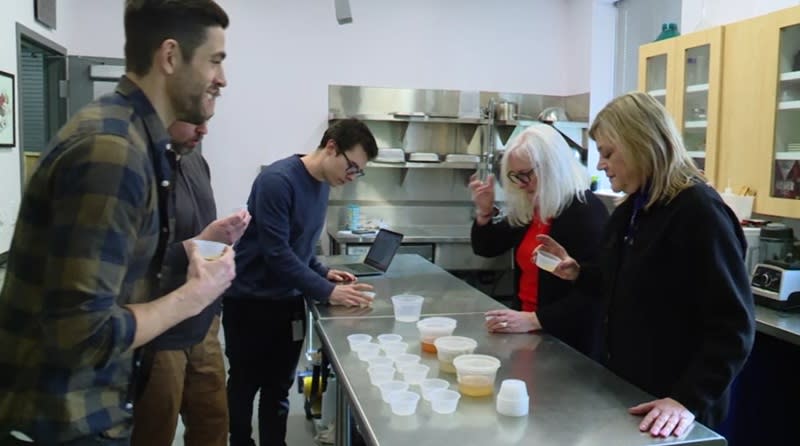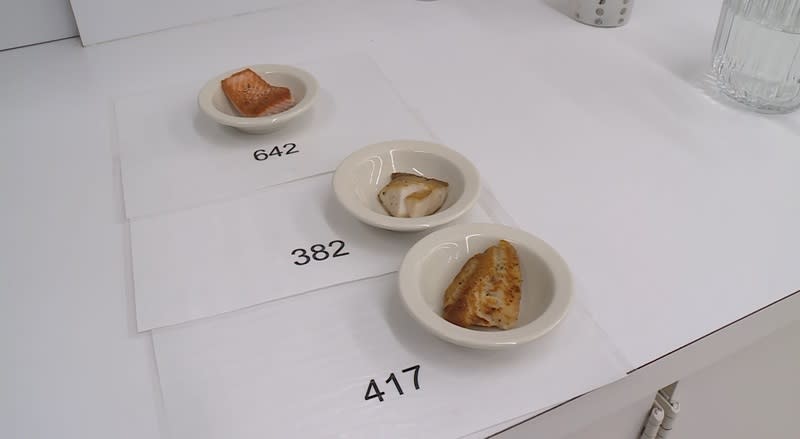Worried about food safety? That’s Stephanie Brown’s job
PORTLAND, Ore. (KOIN) — Stephanie Brown has a pretty simple work rule.
“What I like to think about is think of how many times you have eaten food and haven’t gotten sick,” said Brown, a food safety specialist at Oregon State University’s Food Innovation Center.
In their lab in the Pearl District, the Food Innovation Center does the work that often goes unnoticed to the rest of us.
“My job is to help explain to people why (people haven’t gotten sick from eating food.) How they can do good prevention tips, not just in industry but at home as well. There’s a lot we can do in our homes to reduce that risk of foodborne illness and that’s kind of the basics,” Brown said. “So we offer a variety of food safety trainings to help meet folks where they are, not just in Oregon but the entire Pacific Northwest.”

This crucial work stems from the federal Food Safety Modernization Act of 2011. The FDA said it was meant to transform the nation’s food safety system by shifting the focus from responding to foodborne illnesses to preventing them.
Both big and small businesses come to the Food Innovation Center to figure out how to make sure their products meet food safety regulations.
“We see folks come in that are like, ‘I’m just ready to get started, get the ball running. How do I build safety into my day-to-day’, which is one of my personal favorite things to hear. So we get folks come to us through a lot of different ways. It can be those farmer’s markets. It can be folks that are starting new jobs and they need that to be able to do what they need to do on the day-to-day.”
Brown also has tips to keep your home kitchen safe for food.
“Keep hot things hot, cold things cold. And if you’ve already cooked something, don’t mix it with something that isn’t cooked depending on that type of product,” she said. “For instance, if you’ve used a cutting board and you’ve had raw chicken on that, we probably shouldn’t be putting our leafy greens that we’re not gonna be cooking.”

A thermometer to check the internal temperature on meat is also a must-have. And check your refrigerator.
“It’s surprising how many of us have refrigerators that are running really warm. And some of our food warm pathogens really kind of thrive in that environment,” she said.
It’s mostly common sense.
“You know, just good cleaning and sanitizing. Nobody likes a dirty kitchen anyway.”
This microbiology expert works to prevent people from getting sick. But she’s just one of many people behind the scenes helping keep food safe.
“We’re just one piece of the puzzle. The food industry does a lot of great work to make sure that we’re able to continue to enjoy those peanut butters, those delicious salads, the next big product that’s coming down the line,” Brown said. “So there’s a lot of people at play to make our whole food system safe.”
For the latest news, weather, sports, and streaming video, head to KOIN.com.

